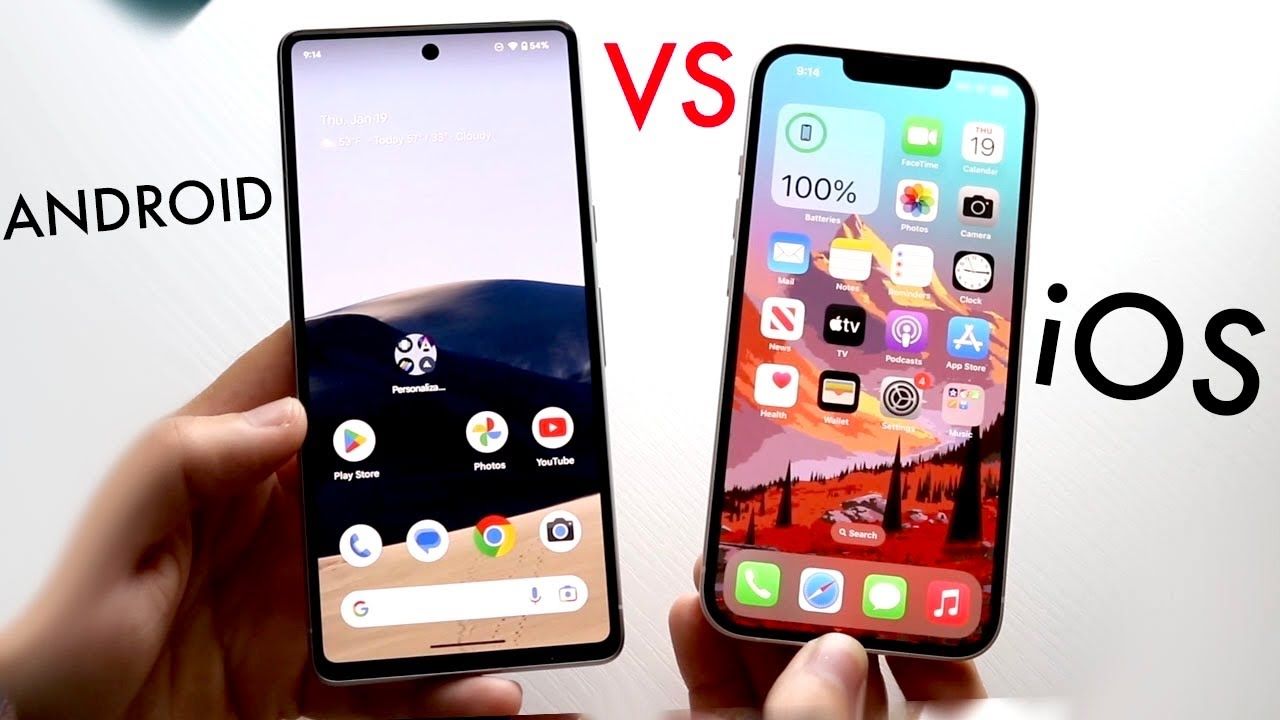

As we approach 2025, the debate between iOS and Android continues to captivate tech enthusiasts and smartphone users alike. With both platforms evolving rapidly, it’s crucial to understand which one might be the best fit for your needs. Let’s explore this topic in more detail with Papa’s Freezeria below, as we delve into the key differences, features, and considerations that will help you make an informed decision about your next mobile operating system.
The smartphone landscape has come a long way since the introduction of iOS and Android. Apple’s iOS, first released in 2007, has always been known for its sleek design, user-friendly interface, and seamless integration with other Apple products. On the other hand, Android, which debuted in 2008, has gained popularity due to its open-source nature, customization options, and wide range of device choices.
As we look towards 2025, both operating systems have continued to refine their offerings, incorporating advanced features such as artificial intelligence, augmented reality, and enhanced privacy measures. iOS has maintained its reputation for security and a curated app ecosystem, while Android has further expanded its reach across various device manufacturers and price points.
The competition between these two giants has driven innovation in the mobile industry, benefiting users with increasingly powerful and feature-rich smartphones. Understanding the strengths and weaknesses of each platform is crucial in determining which one aligns best with your needs and preferences.
Read more: Top 5 Budget Laptops That Offer Great Performance
One of the most noticeable differences between iOS and Android lies in their user interfaces and customization options. iOS has long been praised for its intuitive and consistent design across devices, making it easy for users to navigate and use their iPhones efficiently. The iOS interface is characterized by its simplicity, with a grid of app icons and a uniform look across all Apple devices.
Android, on the other hand, offers a more diverse and customizable experience. Users have the freedom to personalize their home screens with widgets, change default apps, and even install custom launchers to completely overhaul the look and feel of their devices. This level of customization appeals to those who want to tailor their smartphone experience to their exact preferences.
As we approach 2025, both platforms have incorporated more customization options while maintaining their core design philosophies. iOS now allows for more personalization with widgets and custom app icons, while Android has streamlined its interface for a more cohesive experience across different device manufacturers.
When choosing between iOS and Android, consider how much control you want over your device’s appearance and functionality. If you prefer a streamlined, out-of-the-box experience with minimal setup, iOS might be the better choice. However, if you enjoy tinkering with your device and want maximum flexibility, Android could be more appealing.
The app ecosystem plays a crucial role in the overall smartphone experience, and both iOS and Android have vast libraries of applications available. The Apple App Store is known for its strict quality control and curation process, which often results in a higher overall quality of apps. Many developers choose to release their apps on iOS first due to the platform’s reputation for users who are more willing to pay for premium apps and in-app purchases.
Google Play Store, Android’s app marketplace, offers a wider variety of apps, including many free alternatives to popular paid apps. The open nature of Android also allows users to install apps from third-party sources, providing even more options for customization and functionality.
When it comes to software updates, iOS has traditionally had the upper hand. Apple’s control over both hardware and software allows for faster and more consistent updates across devices. iPhones typically receive major OS updates for several years, ensuring access to the latest features and security patches.
Android’s update process has been more fragmented due to the variety of device manufacturers and carriers involved. However, Google has made significant strides in improving the update process through initiatives like Project Treble and Project Mainline. As we look towards 2025, we can expect both platforms to offer more streamlined and timely updates, with Android catching up to iOS in terms of long-term support for devices.
Consider your priorities when it comes to apps and updates. If you value a curated app experience and timely software updates, iOS might be the better choice. If you prefer a wider range of app options and don’t mind potentially waiting longer for updates on some devices, Android could be more suitable.
In an era where digital privacy and security are paramount, both iOS and Android have made significant strides in protecting user data. iOS has long been regarded as the more secure platform due to Apple’s strict control over the hardware and software ecosystem. The company’s focus on privacy has led to features such as App Tracking Transparency, which gives users more control over how their data is shared with advertisers.
Android has also improved its security measures considerably, with features like Google Play Protect scanning apps for malware and the ability to encrypt devices. However, the open nature of the platform and the diversity of device manufacturers can sometimes lead to inconsistencies in security implementation across different devices.
As we approach 2025, both platforms are expected to further enhance their privacy and security features. iOS is likely to continue its strong stance on user privacy, while Android may introduce more unified security measures across its ecosystem. When choosing between the two, consider your personal comfort level with data sharing and the importance you place on privacy features.
Read more: How to Choose the Right Wearable for Your Lifestyle
The integration between hardware and software is a crucial factor in the overall user experience. Apple’s ecosystem is known for its seamless integration between devices, allowing for features like Handoff, which enables users to start a task on one device and continue it on another. The cohesive nature of Apple’s product lineup, including iPhones, iPads, Macs, and wearables, creates a unified experience for those invested in the ecosystem.
Android offers a more diverse hardware ecosystem, with devices available from various manufacturers at different price points. This variety allows users to choose devices that best fit their needs and budget. While the integration between Android devices may not be as seamless as Apple’s ecosystem, Google has made significant improvements in this area with features like Fast Pair for accessories and Phone Hub for connecting with Chromebooks.
As we look towards 2025, both platforms are expected to further enhance their ecosystem integration. Apple is likely to continue refining its seamless experience across devices, while Android may focus on improving cross-device functionality and expanding its range of compatible products.
Artificial intelligence and virtual assistants have become integral parts of the smartphone experience. Apple’s Siri and Google Assistant are the primary AI companions for iOS and Android, respectively. Both assistants have evolved significantly over the years, offering voice-activated controls, personalized recommendations, and integration with various apps and services.
Google Assistant is often praised for its superior natural language processing and ability to understand context, making it more versatile in handling complex queries. Siri, while perhaps not as advanced in some areas, benefits from deep integration with iOS and other Apple services.
As we approach 2025, we can expect both platforms to further enhance their AI capabilities. Apple is likely to focus on improving Siri’s performance and expanding its integration with iOS features, while Google may continue to leverage its vast data resources to make Google Assistant even more intelligent and contextually aware.
When choosing between iOS and Android, consider how much you rely on virtual assistants and which one aligns better with your usage patterns and preferences.
Performance and battery life are critical factors in the smartphone experience. Apple’s tight control over both hardware and software allows for optimized performance on iOS devices. iPhones are known for their smooth operation and efficient use of resources, often delivering excellent performance even with less raw processing power compared to some Android flagships.
Android devices offer a wide range of performance options, from budget-friendly models to high-end flagships with cutting-edge processors. This variety allows users to choose a device that best fits their performance needs and budget. However, the diversity of Android devices can sometimes lead to inconsistencies in performance optimization across different manufacturers.
Battery life is another crucial consideration. Both iOS and Android have made significant improvements in power management over the years. Apple’s approach of optimizing both hardware and software allows for efficient battery usage on iPhones. Android’s adaptive battery features use machine learning to optimize app usage and extend battery life.